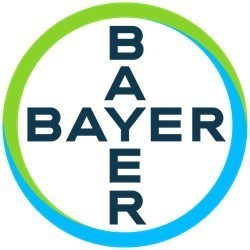PASO ROBLES, Calif., May 2, 2017 /PRNewswire/ -- Bayer and Project Apis m. today announced three new research proposals have received grants from Healthy Hives 2020, a $1 million research effort to improve the health of honey bee colonies in the U.S. by the end of 2020.
The grant recipients include:
- Dr. Olav Rueppell, University of North Carolina at Greensboro, who will investigate virus content and resistance in several currently available honey bees;
- Dr. Edmund Stark, Michigan State University, who will aim to develop a commercially viable, cost-effective product to control the Varroa mite, considered by many to be the major cause of honey bee colony decline; and
- Julie Shapiro, Keystone Policy Center, who submitted a proposal on behalf of the Honey Bee Health Coalition and will conduct the Bee Integrated Demonstration Project to showcase best management practices that help to reduce honey bee colony loss.
"This year's Healthy Hives 2020 grant recipients are undertaking innovative research efforts that have the potential to make an immediate impact on honey bee colony health," said Danielle Downey, executive director of Project Apis m. and Healthy Hives 2020 program manager. "With these projects, Healthy Hives 2020 has funded 10 honey bee research efforts."
The Healthy Hives 2020 initiative was launched in 2015 with a two-day workshop that brought together some of the nation's leading bee health experts and stakeholders at the Bayer North American Bee Care Center in Research Triangle, North Carolina. The 17 summit workshop attendees identified a wide range of bee health concerns which were later reviewed by the Healthy Hives 2020 Steering Committee and prioritized into the most promising areas of research.
The program is focused on four major research objectives:
- Conducting an economic assessment of the "true" cost of commercial beekeeping operations to help beekeepers maximize efficiency and production;
- Creating a set of "Best Management Practices" for commercial beekeeping based on definitive colony health performance data;
- Evaluating the use of "smart hive" technology to monitor honey bee colony health during commercial migratory operations; and
- Assessing honey bee genetics for traits that are relevant to colony resistance to pests and diseases, as well as pollination efficiency and honey production in the U.S.
Healthy Hives 2020 is one of several activities of Bayer's North American Bee Care Program. Other Bayer bee health programs include:
- Establishing the North American Bee Care Center three years ago as a focal point for education, research and collaboration, hosting more than 10,000 visitors;
- Launching Feed a Bee, a major honey bee forage initiative that engaged more than 250,000 consumers last year to distribute seed to plant more than 65 million flowers; and
- Distributing $500,000 over the next two years to fund Feed a Bee planting projects in all 50 states.
For more information on Bayer's bee health programs, please visit www.beehealth.bayer.us. You can also follow and share with us on Twitter @BayerBeeCare, on Facebook at facebook.com/BayerBeeCareCenter and view photos on Flickr.
Bayer is committed to bringing new technology and solutions for agriculture and non-agricultural uses. For questions concerning the availability and use of products, contact a local Bayer representative, or visit Crop Science, a division of Bayer, online at www.cropscience.bayer.us.
Visit the Bayer Connect - Social Hub for social media, recent news, blog posts, videos and more from Crop Science, a division of Bayer.
Bayer: Science For A Better Life
Bayer is a global enterprise with core competencies in the Life Science fields of health care and agriculture. Its products and services are designed to benefit people and improve their quality of life. At the same time, the Group aims to create value through innovation, growth and high earning power. Bayer is committed to the principles of sustainable development and to its social and ethical responsibilities as a corporate citizen. In fiscal 2016, the Group employed around 115,200 people and had sales of EUR 46.8 billion. Capital expenditures amounted to EUR 2.6 billion, R&D expenses to EUR 4.7 billion. These figures include those for the high-tech polymers business, which was floated on the stock market as an independent company named Covestro on October 6, 2015. For more information, go to www.bayer.us.
Project Apis m.
Project Apis m. (PAm) is the go-to organization at the interface of honey bees and pollinated crops. Since 2006, we've infused over $6 million into honey bee research which aims to provide healthier bees, resulting in better pollination and increased crop yields for the grower, and lower losses and better honey production for the beekeeper. We work closely with commercial beekeepers, growers, and top bee scientists in the USA and Canada to direct strategic efforts focused on practical solutions. PAm funds research studies, purchases equipment for research labs, supports graduate students through scholarships to encourage careers in pursuit of science-based solutions to honey bee challenges, and has expanding efforts to enhance honey bee health and nutrition by putting forage on the landscape where it counts most for bees. We are a non-profit 501 (c) (5) organization governed by a nine-member board. Our board members are beekeepers, pollinators and honey producers representing major national and state industry organizations. PAm also has four scientific advisors who review project proposals with the board. For more information on Project Apis m., visit website: www.projectapism.org.
Find more information at www.cropscience.bayer.us.
Forward-Looking Statements
This release may contain forward-looking statements based on current assumptions and forecasts made by Bayer Group or subgroup management. Various known and unknown risks, uncertainties and other factors could lead to material differences between the actual future results, financial situation, development or performance of the company and the estimates given here. These factors include those discussed in Bayer's public reports which are available on the Bayer website at www.bayer.com. The company assumes no liability whatsoever to update these forward-looking statements or to conform them to future events or developments.
SOURCE Bayer
Related Links
WANT YOUR COMPANY'S NEWS FEATURED ON PRNEWSWIRE.COM?
Newsrooms &
Influencers
Digital Media
Outlets
Journalists
Opted In






Share this article